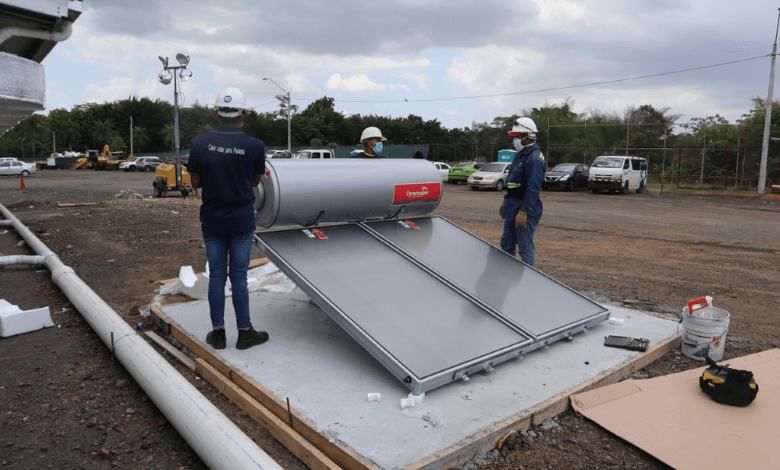Termosolar Panama Helping Caribbean Paradise Abandon Fossil Fuels

Set amid stunning mountains, winding roads and green trees, the Hato Chami school located a few dozen kilometres inland from northern Panama’s coast has more than 1,000 pupils, most of whom hail from one of the country’s largest indigenous groups, the Ngabe.
The institution stands out in the impoverished region because of the solar water heaters fitted to its roof. “People think that because Panama is a hot country there is no need for hot water,” said Luis Navntoft at Termosolar Panama, a partnership that installed the solar water heaters.
“They are often not aware about the need for heat, either for hot water, cooking or conditioning,” Navntoft added. The recently installed solar water heaters at the single-storey school allow students to take hot showers and make it easier for staff to boil water when preparing meals.
Nonetheless, Hato Chami is not unique in Latin America and the Caribbean. A number of schools, hospitals and homes are without hot water. Solar energy was an untapped commodity until recently. And electric water heaters remain expensive for a number of people.
Termosolar Panama Helping Boost Local Skills And Job Creation
Several communities rely on firewood for heating, with the chopping of trees harming one of the most crucial assets against carbon emissions. Innovative Partnerships like Termosolar Panama can help keep trees in the ground to soak up polluting emissions from industry and fossil fuels.
The installed solar water heaters are part of a wider Panamanian effort to move away from polluting entities. Alongside reducing deforestation, solar hot water heating could also help the country counter its reliance on fossil fuels, including liquefied petroleum gas.
Termosolar Panama installed solar heaters in health facilities, hotels, factories, farms and homes, alongside Hato Chami school. The project focused on developing local skills. Consequently, all installations were done by local workers, helping with job creation as well.
Also Read : Break The ‘Climate Silence’ – The Media Must Bring Back Its COVID-style Coverage
“Hot water is one of the easiest things to make sustainable, through solar thermal,” said Geordie Colville, UNEP’s Chief of Energy and Climate. But a large proportion of water in tropical countries gets heated by non-sustainable means, despite plenty of solar energy.



